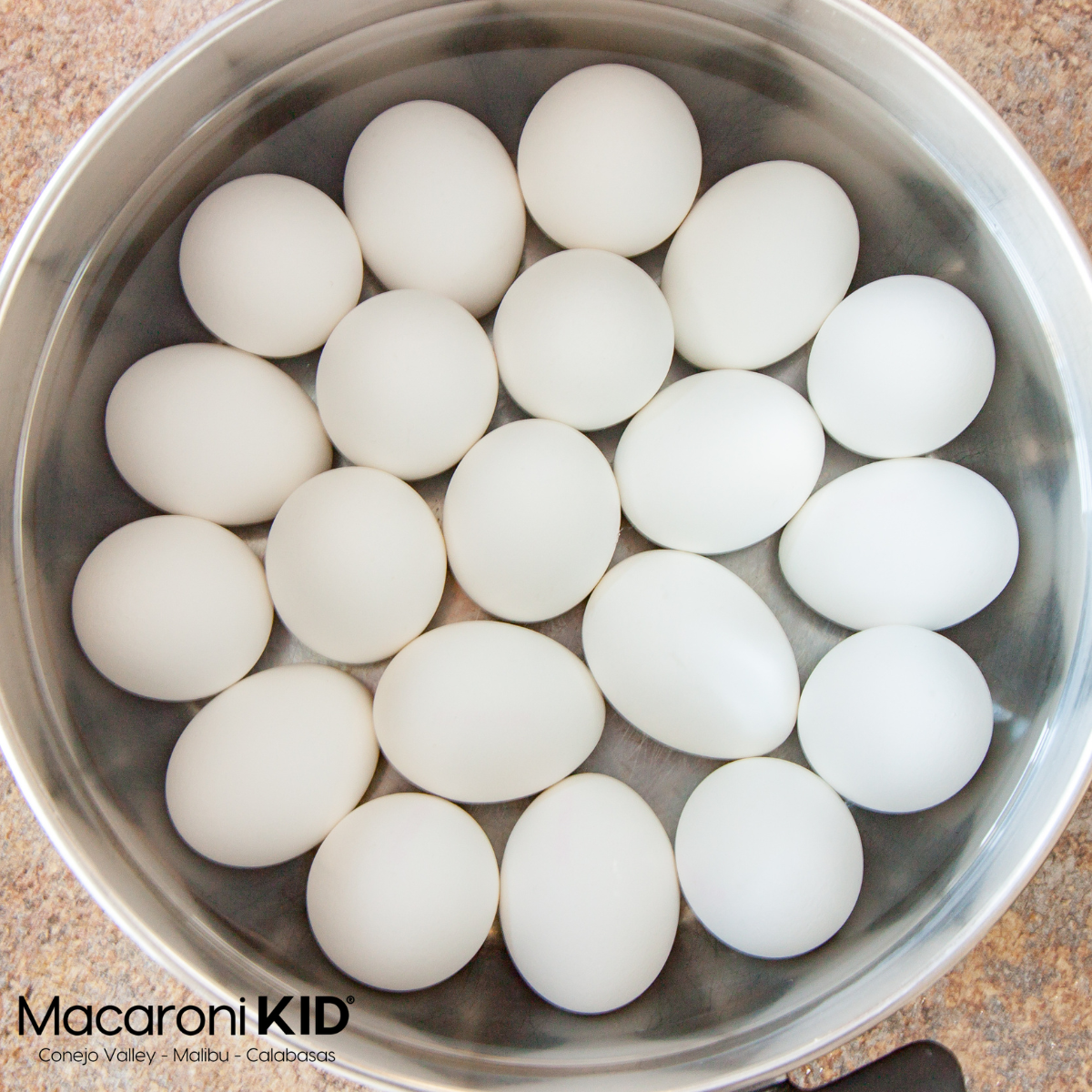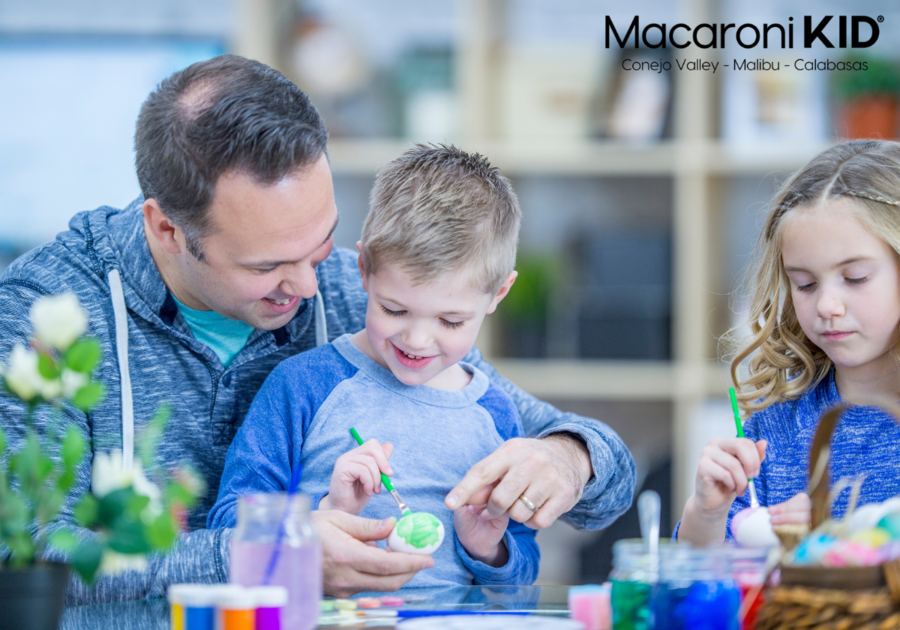Here are a few tips from Macaroni KID that will help with your egg coloring and egg hunting extravaganza!
Buy eggs ahead of time as it makes it easy peeling
The fresher an egg, the harder it is to peel once you have cooked it. A fresher eggs has a small air cell and the membranes between the shell and egg white are quite snug. As the egg ages, it takes in air through the shell’s and it loses carbon dioxide and water. This process makes the egg less acidic and increases the size of the air cell and helps separate the membranes from the shell, both of which make peeling easier.
 traingeek from Getty Images via Canva traingeek from Getty Images via Canva |
Cooking Tips
Boiling eggs makes them tough and rubbery. Eggs that are cooked too long or at too high a temperature also have unattractive green rings around the yolks. Use more gentle cooking to make tender eggs without green rings. Gentle cooking will also help to prevent cracking.
Safety First!
Consider using the dyed eggs for your meal and indoor celebration and plastic eggs for your outside egg hunt.
Follow these rules:
- Wash your hands between all the steps of cooking, cooling, dyeing and decorating.
- Be sure that all the decorating materials and dyes you use are food-safe.
- Keep the eggs refrigerated as much as possible by putting them back into the refrigerator whenever you’re not working with them.
- Dye the eggs in water warmer than the eggs so they don’t absorb the dye water.
- Eggs should not sit out at room temperature for more than two hours. Keep hard-cooked eggs in the refrigerator until ready to use.
- If you'll be hiding the decorated / dyed eggs, be sure to keep them out of the sun, put them where they won’t come into contact with pets, other animals or birds or lawn chemicals. Keep track of how many you hide - you don't want to come across rotten eggs after Easter.
- Eat uncracked, refrigerated hard-cooked eggs within a week of cooking them.









